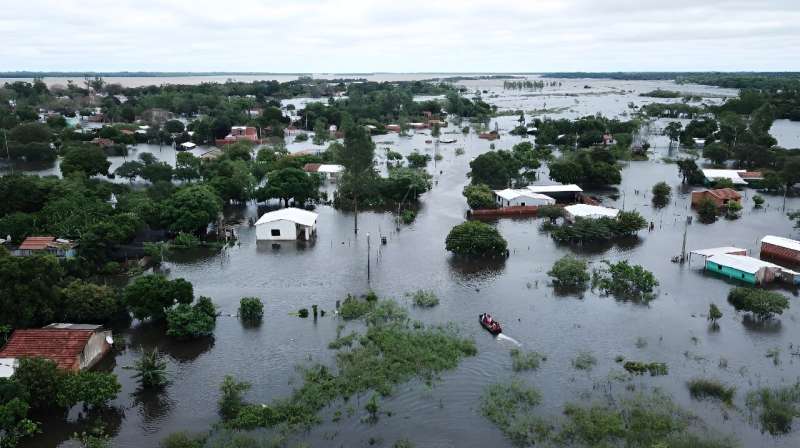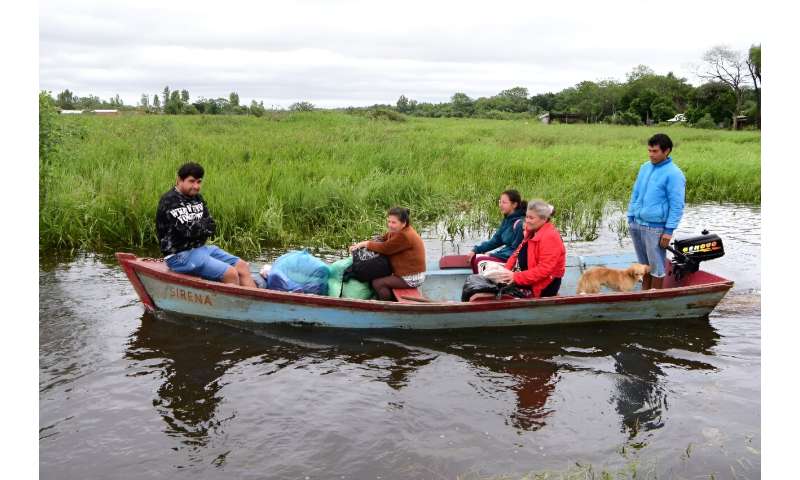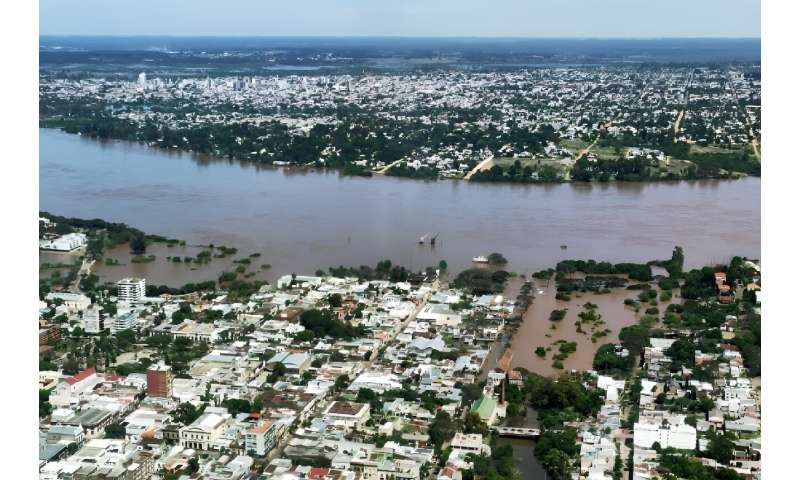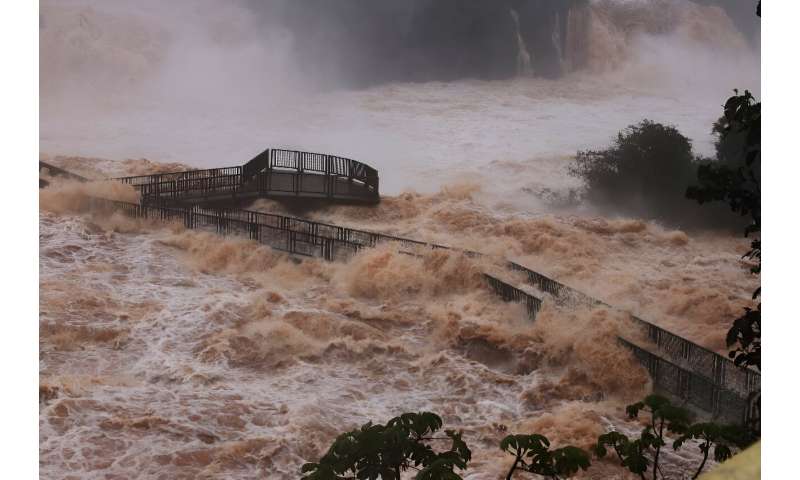This article has been reviewed according to Science X's editorial process and policies. Editors have highlighted the following attributes while ensuring the content's credibility:
fact-checked
reputable news agency
proofread
Storms kill three, displace thousands in southern South America

Three people have died and thousands have had to leave their homes due to heavy rains and flooding in southern South America this week, according to officials who pointed to the El Niño weather phenomenon.
All three deaths—of two elderly people aged 70 and 84 and an 11-year-old girl—were reported due to collapsed homes in two towns in Paraguay, which has been battered by downpours accompanied by tornadoes and rainstorms.
"We are doing our best to reach families in need. We have reports of major damage in about 40 locations," the head of the national emergency office Arsenio Zarate said Friday.
Some 30,000 people in Paraguay have been affected by storms, he added, with more than 600 families evacuated in Ayolas on the banks of the Parana River.
"We can say that El Niño has arrived in Paraguay and will probably remain until the first three months of 2024," meteorologist Eduardo Mingo told AFP.
El Niño is typically associated with warming ocean surface temperatures in the central and eastern tropical Pacific Ocean.
It can bring severe droughts to southern Asia, coupled with increased rainfall in parts of southern South America, the southern United States, the Horn of Africa and central Asia.
The latest El Niño follows hot on the heels of a particularly harsh spell of La Niña, which causes the opposite weather effects and had the south of the South American continent gripped in an historic drought earlier this year, causing crop failures and shortages of drinking water.
-

Evacuations by boat in Ayolas, Paraguay. -

There has been flooding in northern Uruguay. -

Tourist access to the Iguazu falls between Brazil and Argentina has been shuttered due to dangerous water levels.
In Brazil, heavy rains caused flooding and landslides in the southern states of Parana and Santa Catarina this week, but no fatalities, according to the government.
A new cyclone was expected to bring more rain, hail and strong winds Friday to three southern states as well as Brasilia and Rio de Janeiro, with "a risk of power failures, damage to plantations, falling trees and flooding," said the Inmet meteorological agency.
Two people have died in the past month and 16,000 have had to leave their homes because of floods in Parana state, according to officials.
The wet conditions have also affected the Iguazu falls shared by Brazil and Argentina, with tourist access shuttered due to dangerously high water levels.
Argentina's naval hydrography service has also warned of high water levels in the River Plate that Argentina shares with Uruguay, where almost 3,000 people have had to leave their homes in the country's north due to flooding, with more expected.
© 2023 AFP





















